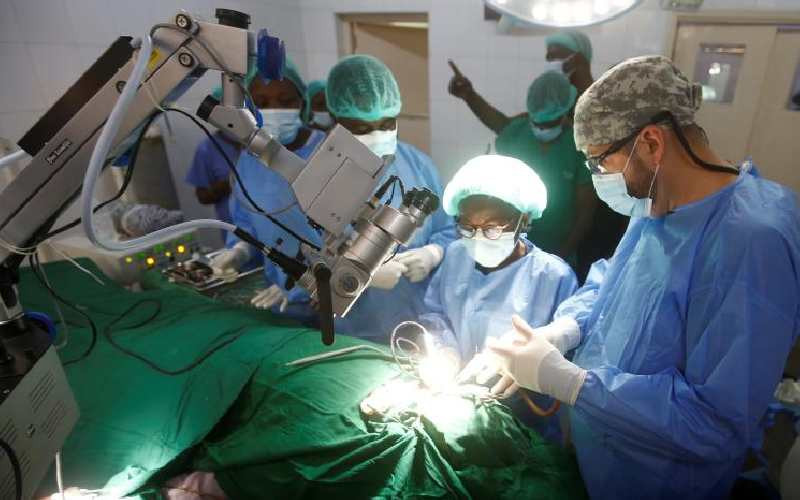×
The Standard e-Paper
Join Thousands Daily

Surgeons from the University of Kentucky in USA, University of Nairobi and Nakuru County conducted an Ossicular chain reconstruction surgery to a patient at Rift valley Provincial General Hospital (PGH) on October 6,2022. [Kipsang Joseph, Standard]
Gerald Mureithi is a happy man having regained hearing after years of suffering from hearing loss.